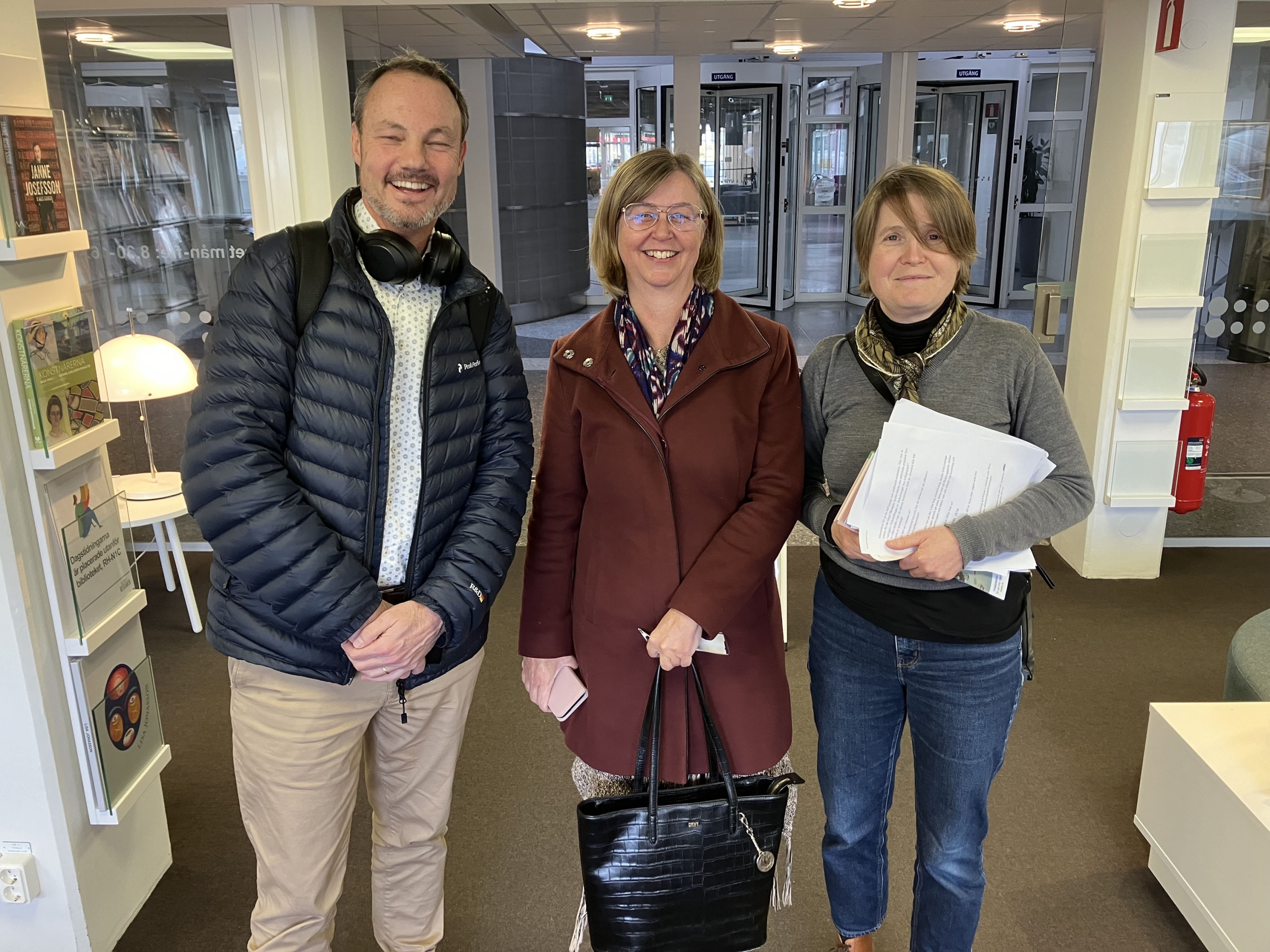Angels and demons. CERN. Antimatter. In Dan Brown’s bestseller from 2000, Professor Robert Langdon is summoned to CERN in Geneva to analyse a mysterious symbol linked to an ancient, secret brotherhood known as the Illuminati. On our visit to CERN with the Swedish Research Council in October, many of us related to the book as we were shown what is probably the most important research infrastructure in the world.
As a way of addressing the ongoing brain drain after the Second World War, European politicians supported the formation of CERN, which was inaugurated in 1954. Over the years, CERN has become a hotspot for important research, leading to many headline innovations such as the internet and MR cameras, but it is also expanding our understanding of the birth of the Universe and the Higgs boson. We now have information about what happened just a wink after the Big Bang 13.8 billion years ago. Even though many of us could only understand parts of the presentations we attended, it was more than enough to confirm the power of science. A large part of CERN’s success is an outgrowth of its highly collaborative, inclusive, and open-minded atmosphere, with scientists from (almost) all over the world working together to address known and emerging challenges.

This photo from CERN shows the first synchrocyclotron – the particle accelerator. It was inaugurated in 1954, 70 years ago.
We also discussed the impact of CERN and a Future Circular Collider in the context of Mario Draghi’s report on current and future European competitiveness and in a world where the importance of being at the forefront of science is not only of academic importance. Nobel Prize-winning basic science paved the way for PCR tests and RNA vaccines, tools that saved us from an even worse outcome from the COVID-19 pandemic. While this is relatively easy to understand for those of us working in science, apparently it does not obviously translate into constructive decision making that favours science. My thoughts fall on the possibility/risk that a vaccine sceptic may be put in charge of U.S. health policy.
In Sweden, the situation is fortunately different. A leading Swedish daily paper has written that the pandemic was a triumph for science. Other investigations also point to very high confidence in science and scientists in how the pandemic was communicated to the public. I assume these combined to improve trust in the vaccine, high vaccine coverage, and subsequent positive – or at least less negative – impacts on public health, health care, and society at large. As one of the many scientists trying to deliver on this third task, this makes me very happy.

This photo is from this autumn when I and general practitioner Ylva Sandström were guests on Morning with Louise Epstein on Sweden’s radio P1 and talked about viruses.
I’m also very pleased that the upcoming research and innovation bill may reward science for its hard work and contributions. From what we know about the numbers, the Swedish Research Council seems to come out very well. Our interpretation is that this is thanks, in part, to the proposal provided by the council, where we highlighted these examples of basic science and their impact. There also seems to be a better understanding for basic (and translational) research, which are both important for our environment. Additionally, our area benefits from two relatively large strategic research programs looking at AMR and viruses and pandemics.
Taken together, I’m very optimistic that Umeå is in a very good position to be competitive in all areas of infection biology!

